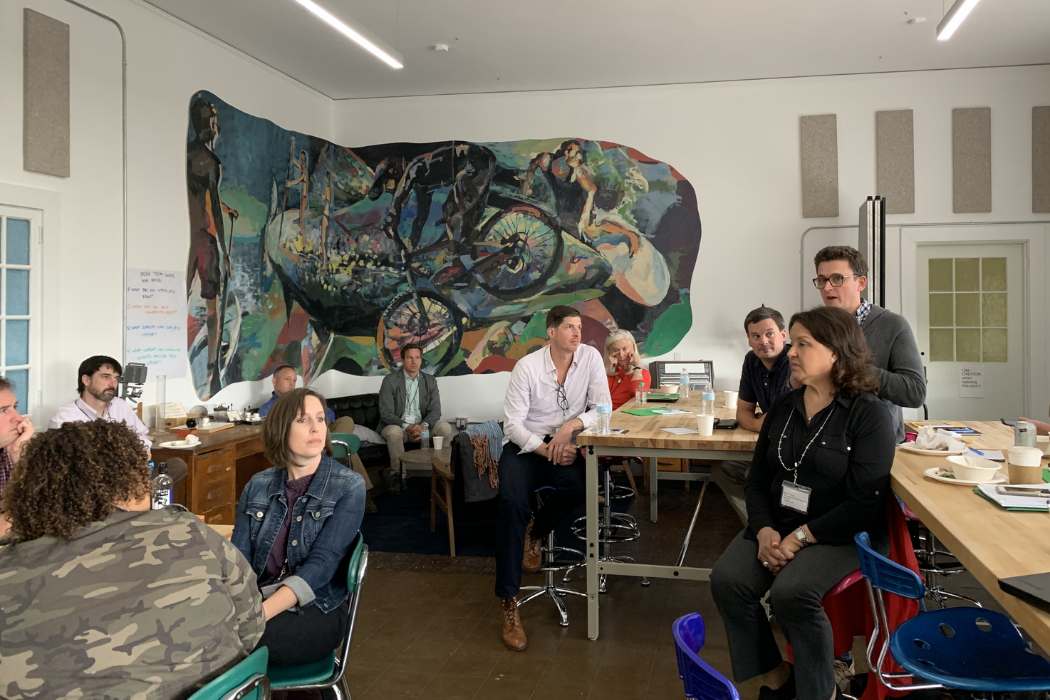A rural community of practice
Now is a moment where we need to think big and to work collaboratively in solving the geographic economic challenges of our country. Forming a strong community of practice is a great place to start.
Community matters
Digital economic development can feel like a lonely game — it’s a sentiment many members of our Rural Innovation Network have shared with us over the years. For rural America, even without the added challenges of a global health pandemic, it’s hard work trying to create jobs and grow sustainable local opportunity in the midst of rapid economic change.
Why? Small communities often lack the resources, connections to national partners, or institutional infrastructure that larger metros offer. And rural America has faced structural shifts — such as the manufacturing decline, population loss, increased automation, and coastal tech agglomeration — that are barriers to economic growth.
These challenges have been exacerbated by the COVID-19 pandemic. Rural counties, many of which had still yet to recover to employment levels seen before the Great Recession, saw severe job losses. Now, even as non-metro employment is inching back, the rate of recovery has slowed. With the virus’s continued negative impact still looming, it has become especially imperative to help rural communities build strategies to get back on their feet.
At the Center on Rural Innovation, we’re committed to connecting rural leaders with the tools, resources, and knowledge needed to fully tap into their town’s potential. One powerful way we do this is through our Rural Innovation Network (RIN) — a growing consortium of rural change agents building digital economy ecosystems in the places they call home.
Through the network, we provide RIN members with a vehicle to connect with each other, share best practices, and aggregate resources. On our Slack channel, through Zoom calls, and by convening working groups, the Rural Innovation Network is fostering real solutions and shared growth among our innovative and resourceful members.
Below are key benefits and impacts we’ve seen from our work with the Rural Innovation Network to date:
Sharing best practices
Joined together through our community of practice, leaders regularly share what’s working for them, offering insights and success stories others communities can build from and execute. It’s a great example of a collaborative economic development process and a way to highlight and refine good ideas with the potential to make a real difference.
For example, as the COVID-19 pandemic became a reality, some innovation hubs designed remote work waivers or detailed plans on re-opening their spaces. Instead of keeping them private, our communities shared their strategies and what worked, allowing safe re-openings to take place all over the country. Further, when we launched our Future is Digital Challenge, our Rural Innovation Network Slack channel was full of strategies from our communities as they tried new means of outreach and recruitment.
Creating virtual scale
Agglomeration is a big part of what drives dense urban economies, with lots of talented people all working in a physical proximity that sparks new ideas and collaboration. This kind of scale is simply, by the numbers, harder to achieve in smaller communities.
When COVID forced our community partner in Red Wing, Minnesota, to take a planned in-person pitch competition fully online, they leveraged resources from other Network communities, including Springfield, Vermont, to actually produce it. This collaboration exemplified the promise of partnership and allowed an important entrepreneurship event to proceed, maintaining its community impact and ultimately expanding its reach and impact.
Scaling good ideas
Our community of practice also offers a powerful opportunity to pilot and evaluate new initiatives that could move the needle on rural employment. Because of the shared goals of our communities and the gritty commitment to sustainable development, we can quickly find what works — and highlight what doesn’t — by rolling out ideas in a diverse set of places.
For example, Codefi, in Cape Girardeau, Missouri, runs the Youth Coding League, an incredibly successful student computer science program. Now, they’re working to expand the idea to other network communities; Wilson, North Carolina, and Springfield, Vermont, are already on board.
These successes since we formed the Rural Innovation Network in 2019 are just the beginning of what our community of practice will be able to accomplish. Now is a moment where we need to think big and to work collaboratively in solving the geographic economic challenges of our country. Forming a strong community of practice is a great place to start.
Stay in touch
To learn more about how CORI is working to empower leaders across rural America and create inclusive digital ecosystems, sign up for our newsletter.
